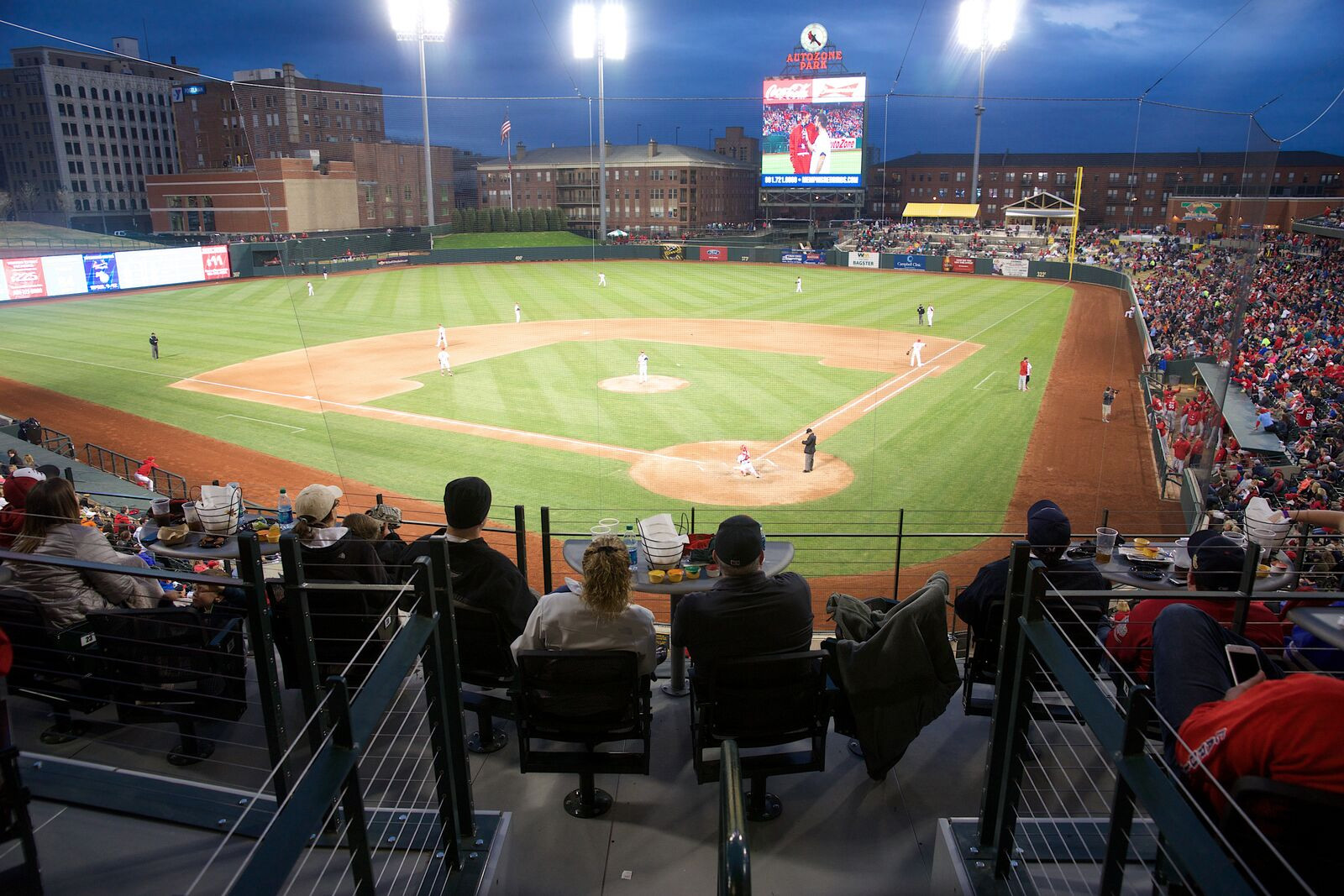It’s a big season for the Memphis Redbirds (Class AAA; Pacific Coast League), as the team celebrates twenty years of AutoZone Park, a pioneer in the return of the downtown urban ballpark.
This is a big anniversary, for sure. At one time the Redbirds and AutoZone Park were hailed as shining stars in the Minor League Baseball world thanks to their nonprofit status, but challenging finances led to cutbacks and eventually a sale of the team to the St. Louis Cardinals. (In turn, the Cardinals sold a majority share of the team to Peter Freund.) Under Freund and President/General Manager Craig Unger, Redbirds attendance is up, and money has been spent on AutoZone Park renovations, leading us to name parent Trinity Sports Holdings as our 2017 Ballpark Digest Organization of the Year.
When AutoZone Park first opened, however, the idea of a new downtown ballpark was still a novel one. While these days the assumption is that a ballpark — or any other sporting facilities, for that matter — will be located in a city’s downtown, in those days it was not a given, to be sure. Oriole Park and Sahlen Field were both earlier pioneers in the movement, to be sure, but they were still outliers where city planners were concerned. According to Allie Prescott, original general manager and president of the Redbirds, the downtown location was key From the Commercial Appeal:
“There was just this stigma that you couldn’t do anything downtown,” Prescott said. “With the exception of the Rendezvous, very few things flourished in downtown Memphis.”
But Redbirds founders Dean and Kristi Jernigan, along with Prescott, all of them Memphians, had a vision. When the Memphis Chicks threatened to leave town and eventually moved to Jackson, Jernigan made it his mission to ensure Memphis got minor league baseball back.
Then they made the crucial decision that the ballpark for this new baseball franchise had to go downtown. Not at Shelby Farms or anywhere else out east, where all of the city’s wealth had migrated. And not near the Liberty Bowl and the site of old Tim McCarver Stadium.
“We wanted to contribute to this city,” Prescott said.

